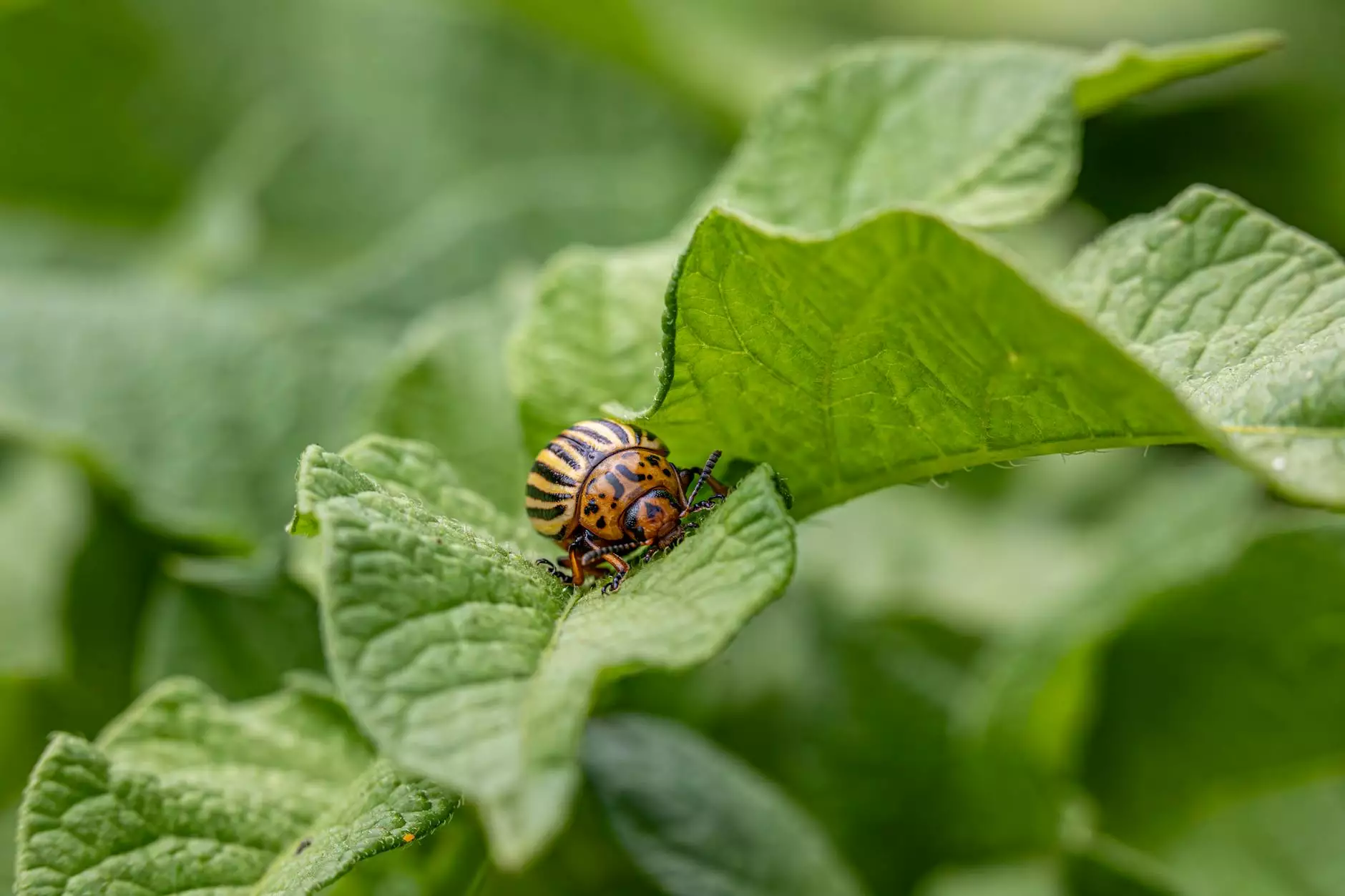Understanding Insecticides for Rice Bugs: A Farmer's Guide

In the world of agriculture, maintaining healthy crops is paramount to ensuring both productivity and profitability. Rice bugs, notorious pests that can wreak havoc on rice crops, present significant challenges for farmers. One effective solution to this problem is the application of insecticides specifically designed for rice bugs.
The Importance of Managing Rice Bugs
Rice bugs, such as the Leptocorisa oratorius, are small insects that feed on the plant's sap. Their feeding habits not only damage individual grains but can also lead to larger-scale issues such as:
- Reduced yield: Infestations can drastically decrease your overall rice production.
- Quality degradation: Damaged crops may result in lower market prices.
- Pest resistance: Unmanaged infestations can lead to more resilient bug populations.
Choosing the Right Insecticide for Rice Bugs
When selecting an insecticide for rice bug, farmers need to consider several critical factors:
1. Identify the Bug Species
Proper identification of the rice bug species is essential as different species may respond better to specific insecticides. The most common types of rice bugs include:
- Leptocorisa oratorius
- Stenocoris fumidulus
- Oebalus pugnax
2. Understand Insecticide Types
There are several types of insecticides that can be effective against rice bugs:
- Chemical Insecticides: These are synthetic products designed to kill pests effectively.
- Botanical Insecticides: Derived from plants, these options are more environmentally friendly.
- Insect Growth Regulators (IGRs): These disrupt the life cycle of bugs, preventing maturity and reproduction.
3. Select the Application Method
Application methods for insecticides can vary and have different levels of effectiveness. They include:
- Spraying: Often the most effective method for widespread infestations.
- Soil application: Useful for systemic insecticides that need to be absorbed by the roots.
- Granular applications: Effective in targeting specific areas of infestation.
Best Practices for Using Insecticides
Maximizing the effectiveness of your chosen insecticide for rice bug involves adhering to best practices, such as:
1. Timing and Frequency of Application
The timing of insecticide application is critical. Treatments should be applied when rice bugs are most active, typically:
- During early morning or late afternoon when temperatures are cooler.
- During flowering stages when rice plants are vulnerable.
2. Monitoring Pest Levels
Regular monitoring of your crops for signs of rice bugs can help determine the need for insecticide application. Techniques for monitoring include:
- Visual inspections of plants.
- Using yellow sticky traps to capture and count pests.
- Assessing damage levels on grains.
3. Integrating Pest Management Strategies
To effectively combat rice bugs, consider an Integrated Pest Management (IPM) approach that combines various tactics:
- Biological control, such as introducing natural predators.
- Cultural practices, including crop rotation and habitat management.
- Regular use of resistant rice varieties.
Environmental Considerations
When applying insecticides, it's crucial to consider their potential impact on the surrounding environment. Responsible usage includes:
1. Reducing Chemical Runoff
Proper application methods can minimize runoff into nearby water bodies, protecting aquatic ecosystems.
2. Choosing Less Harmful Alternatives
Explore botanical insecticides or IGRs that pose fewer risks to non-target species.
Benefits of Proper Insecticide Use
Adhering to the best practices in insecticide usage not only helps in managing rice bugs but also offers the following benefits:
- Increased yield: Healthy crops lead to more significant harvests.
- Improved quality: Higher-quality grains fetch better market prices.
- Cost-effectiveness: Reducing the need for multiple treatments saves money in the long run.
Conclusion: Empowering Farmers with Knowledge
Applying the right insecticide for rice bug is essential for maintaining the health of rice crops. By understanding the types of rice bugs, selecting appropriate insecticides, and employing effective application strategies, farmers can protect their yields and ensure greater profitability. At TSGC Inc., we understand the challenges you face in agriculture, and we are committed to providing the best equipment and resources to enhance your farming practices.
For more information on farming equipment and specialized pest management strategies, visit our website at TSGC Inc..
Additional Resources
To further assist you in your agricultural endeavors, here are some additional resources:
- Rice Bug Control Techniques
- Farming Equipment for Pest Management
- Best Insecticides for Rice Farms
By staying informed and proactive, you can safeguard your crops against the threats posed by rice bugs. Together, let’s cultivate a better future for all farmers.



